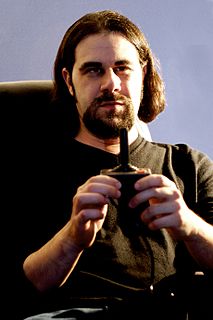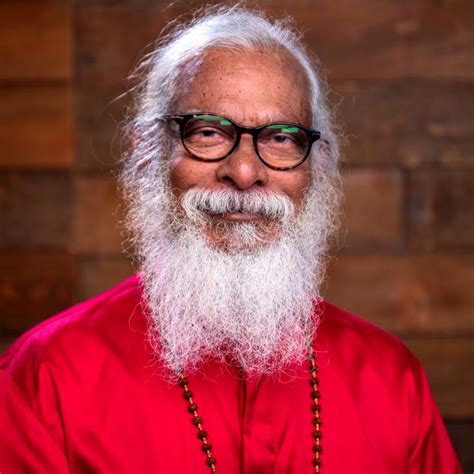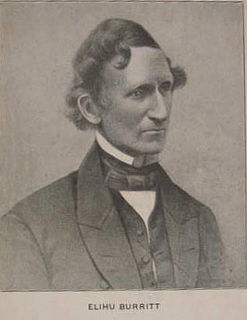A Quote by Marcus Eremita
We cannot with all our heart forgive someone who does us wrong unless we possess real knowledge. For this knowledge shows us that we deserve all we experience.
Related Quotes
We don't exist unless there is someone who can see us existing, what we say has no meaning until someone can understand, while to be surrounded by friends is constantly to have our identity confirmed; their knowledge and care for us have the power to pull us from our numbness. In small comments, many of them teasing, they reveal they know our foibles and except them and so, in turn, accept that we have a place in the world.
You know, Sage, Jesus didn't tell us to forgive everyone. He said turn the other cheek, but only if you the one who was hit. Even the Lord's Prayer says it loud and clear: Forgive us our trespasses, as we forgive those who trespass against us. Not others. What Jesus challenges us to do is to let go of the wrong done to you personally, not the wrong done to someone else. But most Christians incorrectly assume that this means that being a good christian means forgiving all sins, and the sinners.
We forgive, if we are wise, not for the other person, but for ourselves. We forgive, not to erase a wrong, but to relieve the residue of the wrong that is alive within us. We forgive because it is less painful than holding on to resentment. We forgive because without it we condemn ourselves to repeating endlessly the very trauma or situation that hurt us so. We forgive because ultimately it is the smartest action to take on our own behalf. We forgive because it restores to us a sense of inner balance.
The endless cycle of idea and action, Endless invention, endless experiment, Brings knowledge of motion, but not of stillness; Knowledge of speech, but not of silence; Knowledge of words, and ignorance of the Word. All our knowledge brings us nearer to our ignorance, All our ignorance brings us nearer to death, But nearness to death no nearer to God. Where is the Life we have lost in living? Where is the wisdom we have lost in knowledge? Where is the knowledge we have lost in information? The cycles of Heaven in twenty centuries Bring us farther from God and nearer to the Dust.
To recognize our bias toward error should teach us modesty and reflection, and to forgive it should help us avoid the inhumanity of thinking we ourselves are not as fallible as those who, in any instance, seem most at fault. Science can give us knowledge, but it cannot give us wisdom. Nor can religion, until it puts aside nonsense and distraction and becomes itself again.
We have heard of a Society for the Diffusion of Useful Knowledge. It is said that knowledge is power, and the like. Methinks there is equal need of a Society for the Diffusion of Useful Ignorance, what we will call Beautiful Knowledge, a knowledge useful in a higher sense: for what is most of our boasted so-called knowledge but a conceit that we know something, which robs us of the advantage of our actual ignorance? What we call knowledge is often our positive ignorance; ignorance our negative knowledge.
We pretend with a spiritual life we don't live, a peace we don't experience and a holiness and commitment we don't possess. ... We will never make any progress in becoming more like Jesus unless we permit God to cut us open, search our hearts, try us, know our thoughts and then change us from the inside. Only then can we become real according to the Word of God.
Despite all the doom and gloom that constantly assaults our senses, there is a way for us to ransom our lives and reclaim our futures: it consists in turning away from the world to recognize what in life makes us truly happy. For each of us, what that is will be different. But once we obtain this inner knowledge, we will possess the ability to transform our outer world. "You can live a lifetime and, at the end of it, know more about other people than you know about yourself," the pilot and writer Beryl Markham reminds us. We cannot let this continue to occur.
The library connects us with the insight and knowledge, painfully extracted from Nature, of the greatest minds that ever were, with the best teachers, drawn from the entire planet and from all our history, to instruct us without tiring, and to inspire us to make our own contribution to the collective knowledge of the human species.
The significance of our lives and our fragile planet is then determined only by our own wisdom and courage. We are the custodians of life's meaning. We long for a Parent to care for us, to forgive us our errors, to save us from our childish mistakes. But knowledge is preferable to ignorance. Better by far to embrace the hard truth than a reassuring fable. If we crave some cosmic purpose, then let us find ourselves a worthy goal.
There are two modes of acquiring knowledge, namely by reasoning and experience. Reasoning draws a conclusion and makes us grant the conclusion, but does not make the conclusion certain, nor does it remove doubt so that the mind may rest on the intuition of truth, unless the mind discovers it by the path of experience.
Each member of society can have only a small fraction of the knowledge possessed by all, and...each is therefore ignorant of most of the facts on which the working of society rests...civilization rests on the fact that we all benefit from knowledge which we do not possess. And one of the ways in which civilization helps us to overcome that limitation on the extent of individual knowledge is by conquering intelligence, not by the acquisition of more knowledge, but by the utilization of knowledge which is and which remains widely dispersed among individuals.




































